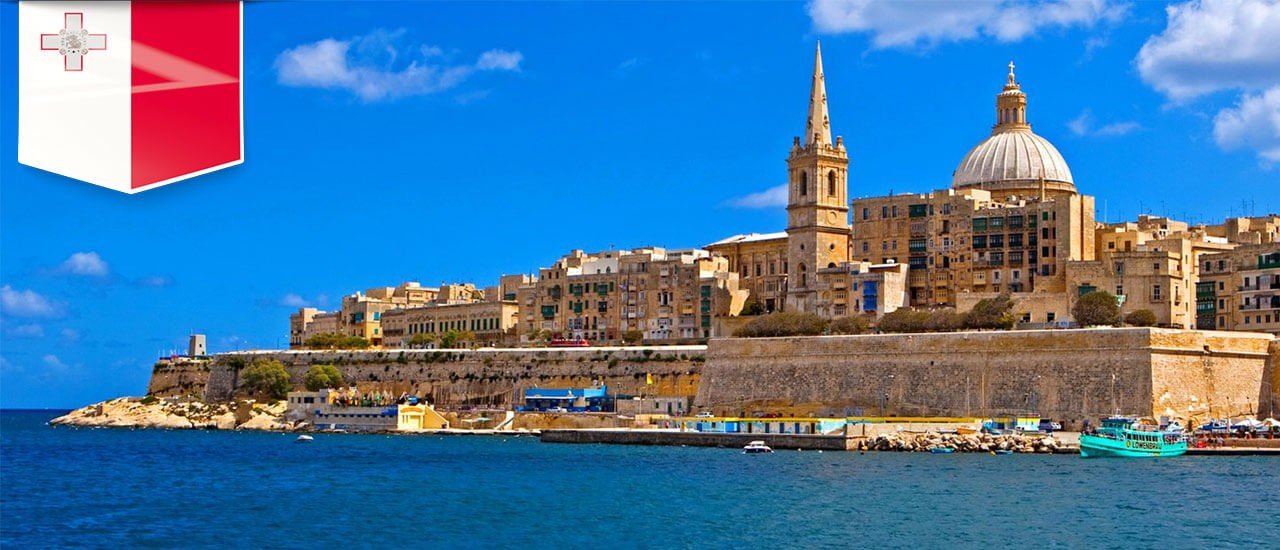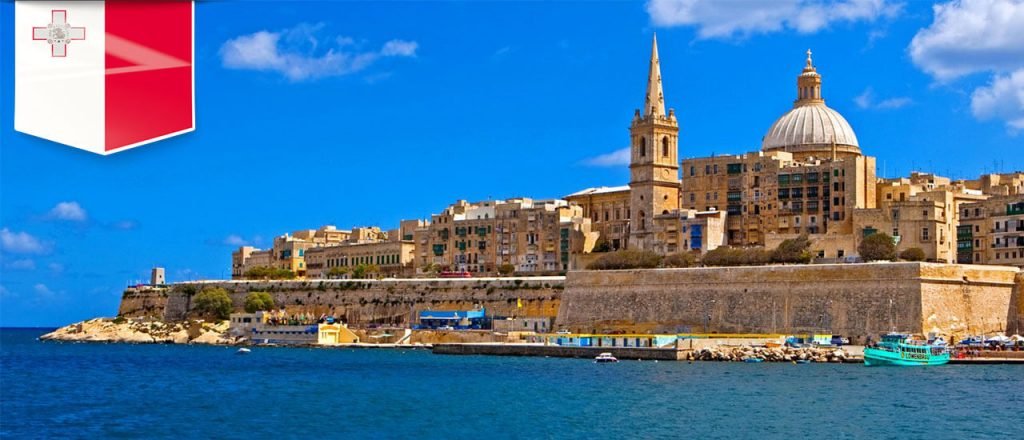Malta is the smallest of all the EU countries, with a population of only around 500,000 people. But that doesn’t mean you should overlook it as a potential retirement or overseas living destination. Find out why below…
An Affordable Maltese Residency Program For Retirees
Malta is a go-to destination for retirees, gambling operators and blockchain startups alike. Strategically located in the Mediterranean, the country is renowned for its natural beauty, architectural gems and the sun-drenched Mediterranean lifestyle.
Malta is an archipelago just south of Italy’s Sicily, consisting of three main islands. But only two of them — Malta and Gozo — have any significant populations.
The island of Gozo is the place for retirees. Gozo is quieter, offers a slower pace of life, and will bring you closer to nature. (The main island of Malta, in contrast, is far more lively).
Let’s get into the details of their retirement residency program below…
Introducing The Malta Retirement Program (MRP)
The Malta Retirement Program (MRP), initially launched for retired EU citizens only, was subsequently made available for non-EU nationals as well in 2020.
Here are its main requirements:
There is no exact amount as to how big your pension should be, but your retirement benefits should constitute at least 75% of your entire income. You will need to sign a declaration stating this is true when applying for this residency in Malta.
So you cannot be officially retired and draw a pension of say $3,000 per month, while also drawing a $2,000 monthly income in rental or dividends. The pension’s share of your total income will be 60% in this case, which is lower than the 75% required.
Malta does not require you to remit your other income (up to 25% of your total earnings) into the country, so that portion won’t be taxed there.
Additionally, you must sign a rental contract worth at least €9,600 (~$11,500) per year. The required rent goes down to €8,750 (~$10,400) per year if you choose the southern, less populated part of Malta island, or Gozo.
That’s €800 (~$950) and €730 (~$870) per month, respectively, to rent a decent home — reasonable amounts by Maltese standards.
And if you are ready to purchase a property right away, you can instead opt to buy a home in Malta worth at least €275,000 (or €220,000 within southern Malta and Gozo). That’s ~$325,000 and ~$260,000, respectively.
Then, you will also need to obtain private health insurance in Malta. This would typically cost between €750 (~$900) and €1,500 (~$1,800) per person per year, depending on your age and health.
To be able to renew your residency one year later, you will need to spend at least 90 days per year in Malta, and never spend more than 183 uninterrupted days in any other country.
The application process can be completed 100% remotely, or it can be done through one of their “Authorised Registered Mandatories” — a service provider on the ground.
In Malta, Retirement Residency comes with a special tax deal…
While Maltese tax rates ordinarily reach 35%, the country can be a very tax-efficient place to live as a foreigner.
The Malta Retirement Program comes paired with a tax deal, through which you and your dependents will be liable to pay a single tax rate of only 15% on your taxable income.
Your “taxable income” is essentially your entire pension, which must be remitted to Malta. Any income derived from within Malta is taxed at 35%.
There is a condition, however — you will need to pay at least €7,500 (~$8,900) in tax every year. This amount increases by €500 (~$590) per year for each dependent living with you in Malta.
Considering the 15% tax rate, it means that you will pay tax on at least €50,000 (~$60,000) of your income/remitted funds.
But what if your annual retirement income is higher than that?
According to the law, you must remit your entire pension to Malta and pay 15% tax on it. So if you receive €150,000 in retirement income, you will have to pay €22,500 in tax on it every year.
(As a result, the Retirement Program might work best for those who don’t have a sizeable pension.)
On the bright side, any capital gains that you may realize outside of Malta are tax-free even if you decide to bring these funds to the country (and you don’t have to).
Also, the Maltese “tax deal” does not expire. It will last as long as you participate in the Retirement Program.
Can the MRP lead to citizenship in Malta?
If you hold residency in the country for five years or more, you become eligible to apply for naturalization.
However, according to our contacts on the ground, you should not really count on becoming a Maltese citizen after living there just for five years. According to them, realistically, one will need to spend at least 15 years as a Maltese resident to be taken “seriously”.
Alternatively, you can also stop at the permanent residency stage after five years — which is likely what most retired folks would do.
However, to claim permanent residency, you would need to spend at least six months on the ground during each year of your residency.
The bottom line
If you’re looking for a safe, scenic and sunny place to retire, Malta can be an excellent choice — with compelling tax benefits to sweeten the deal. We recommend you travel there at least once to get a feel for the country; it’d be well worth the trip.
Yours in Freedom,
Team Sovereign Man
PS: Not at retirement age yet? Stay tuned for next week’s episode, in which we’ll be revealing an excellent, affordable Maltese residency option for non-retired people…
PPS: Enjoying the weekly Knowledge Series emails? Why not give us a star-rating below?









